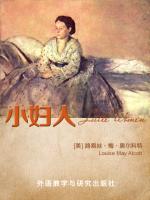This Movie Is Good
“Christmas won’t be Christmas without any presents.” That’s the first sentence of “Little Women,” and I’m happy to say that in this gloomy holiday season — when so much of humanity has earned Krampus or coal — the new movie version of Louisa May Alcott’s novel comes as an absolute gift.
A whole stocking full, really. Written and directed by Greta Gerwig, this “Little Women” — the latest of many adaptations — embraces its source material with eager enthusiasm rather than timid reverence. It is faithful enough to satisfy the book’s passionate devotees, who will recognize the work of a kindred spirit, while standing on its own as an independent and inventive piece of contemporary popular culture. Without resorting to self-conscious anachronism or fussy antiquarianism, Gerwig has fashioned a story that feels at once entirely true to its 19th-century origins and utterly modern.
Some of that freshness comes from the cast, a cornucopia of effervescent young talent ballasted by a handful of doughty old-timers. There is also an exuberance — an appetite for clothes, books, baked goods and adventure — that effortlessly links then to now. At the center of the hullabaloo, as she was in Gerwig’s “Lady Bird,” is Saoirse Ronan. She plays Jo March, the second oldest of four sisters living in Concord, Mass., during and after the Civil War.
The foursome varies by temperament and talent, inviting a mix-and-match game of identification and infatuation. The oldest, Meg (Emma Watson) is theatrical and responsible; Beth (Eliza Scanlen) is musical and sweet. The youngest sister, Amy (Florence Pugh), and Jo are a painter and a writer who are frequently at odds. Before romance, tragedy and the ordinary pains of growing up complicate matters, they are an inseparable if not always harmonious troupe. Jo writes the plays that the rest of them perform for an audience that includes various toys, their mother (Laura Dern) and Hannah (Jayne Houdyshell), the housekeeper.
But the sisters live mainly to delight (and sometimes to torment) one another. The spectacle of their natural, affectionate, clamorous intimacy is a joy to behold, one we occasionally glimpse through the amused eyes of potential suitors, fond neighbors and a prodigiously judgmental and very wealthy aunt played by Meryl Streep. The girls’ nonjudgmental, non-wealthy father is played by Bob Odenkirk.
Rather than starting where Alcott does, during an austere wartime Christmas, Gerwig introduces us to Jo seven years later, an ink-stained scribbler paying a visit to a New York publisher (Tracy Letts). The rest of “Little Women” zigzags between two periods in the lives of Jo and her family. Whereas Alcott traces their fates in a straight line, Gerwig (aided by the deft editing of Nick Houy and the musical stitching of Alexandre Desplat’s score) proceeds by association and recollection. It’s as if the book has been carefully cut apart and reassembled, its signatures sewn back together in an order that produces sparks of surprise and occasional bouts of pleasurable dizziness.
This chronological shuffling jolts the story awake and nudges the viewer to pay close attention. Like any good novelist and every great filmmaker, Gerwig isn’t afraid to let her audience work a little. She trusts our intelligence and our curiosity, and also her own command of the medium. Reshuffling the plot is a way of making “Little Women” more cinematic without resorting to tricks or gimmicks.



 京公网安备 11010802032529号
京公网安备 11010802032529号